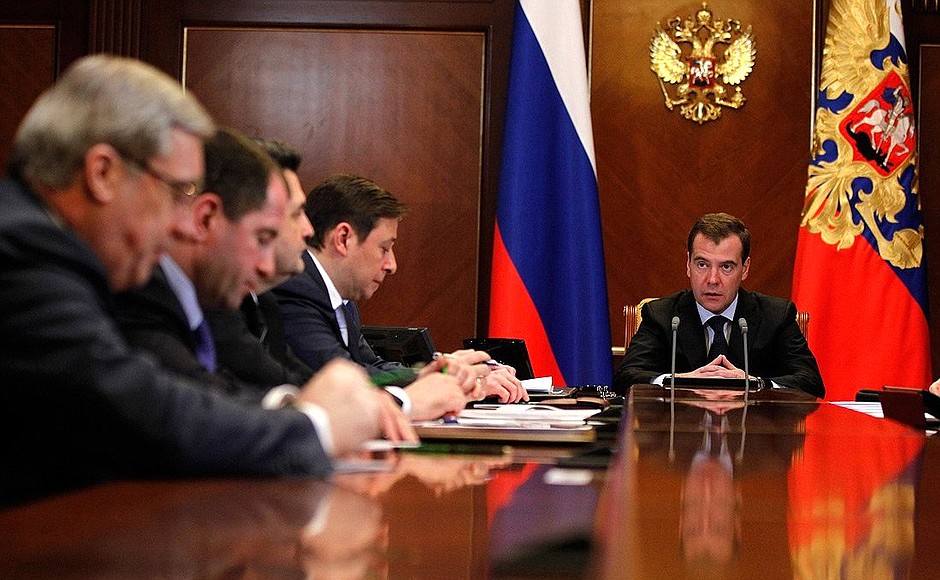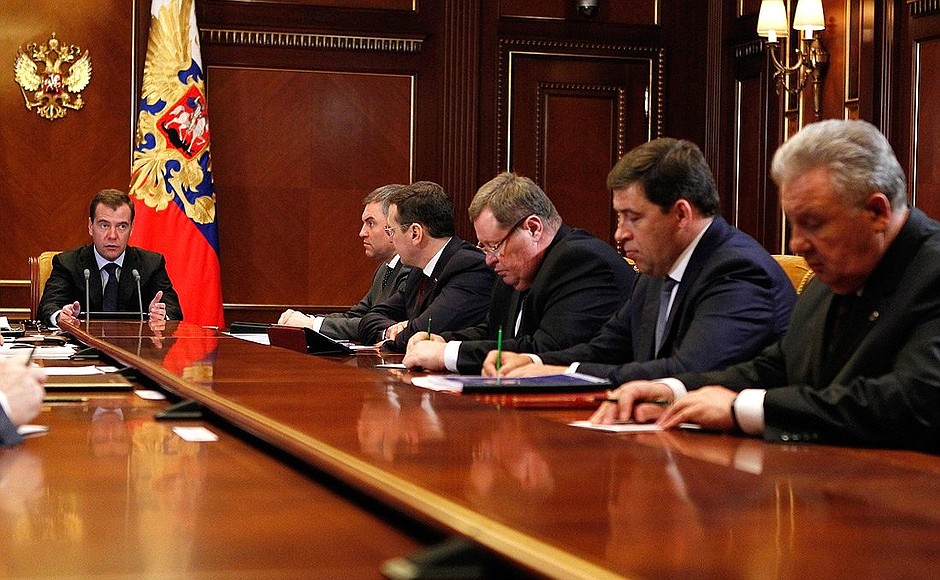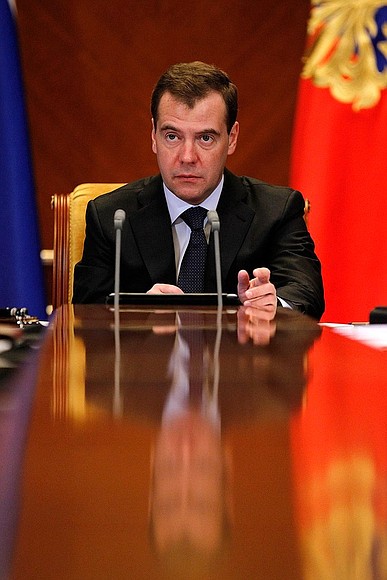* * *
President of Russia Dmitry Medvedev: Good afternoon, colleagues.
Let me say a few words at the start of our meeting.
The institution of the Presidential Plenipotentiary Envoys to the Federal Districts was established as a tool to help implement the president’s domestic policy. This task will perhaps become more complex in nature as we carry out political reforms that will develop political competition and the level of popular representation.
I want to briefly sum up the results of the plenipotentiary envoys’ work over the last four years and outline the tasks ahead.
You have all been working on the issues under your responsibility and have been implementing presidential policy in the federal districts. Some of you have been in your posts a longer time, and others are more recent appointees. Over these four years we have seen an addition, too, to the number of federal districts.
The next point I want to make in this open-doors part of the meeting is that, as you know, major amendments to the law On Political Parties have been signed and come into force. These changes remove the excessive barriers for establishing political parties and for their operation.
An active process of creating new parties is already underway. We can say with certainty that the number of parties competing in election campaigns and the level of competition will increase. To my knowledge, the Justice Ministry has already received some 120 applications from organising committees seeking to establish new political parties. This coming October we will see a number of regions hold elections for their regional parliaments in accordance with the amended law On Political Parties.
”We are carrying out these political reforms in the interests of Russia’s people. Our purpose is to give our citizens maximum opportunity for taking part in forming the bodies of government and making the decisions upon which their daily lives depend.“
The second key issue is the move to direct elections of regional heads by the regions’ voters. The State Duma has already passed this law in its first reading. Under its provisions, prospective candidates would come primarily from political parties. The law’s text has been sent to the regions for discussion. Many proposals and suggested amendments have come in and are being examined. All proposals will be thoroughly analysed and the State Duma will, in the end result, pass its final drafting of the law.
Recently, on April 5, I met with colleagues from the municipalities and with some of the regional heads. A number of interesting proposals came up during our discussions, including the idea of involving deputies in local government representative bodies in the process of nominating candidates for regional governorships. To this end, it is proposed that one of the conditions for registering candidates should be that they must collect signatures in their support from municipal deputies. The proposal’s authors think that this would make it possible to give greater consideration to local people’s interests and raise the level of political responsibility of prospective candidates in gubernatorial elections.
Furthermore, as you know, it has been proposed that all regional elections take place on a single day. There are a number of arguments in favour of this, including practice elsewhere around the world, saving budget money, and quite simply the climatic factor in our country. In any case, the country should not have to spend the entire year in the midst of election campaigns, all the more so now that the number of political parties, which is set to increase dramatically, will make these campaigns that much more complicated.
I think that these proposals merit our attention, and are worth considering during the law’s passage through the State Duma.
The draft law on electing regional governors will complete its passage through the parliament at the end of April. As soon as the law is signed, work will begin to pass the relevant laws in all of the country’s regions. This will require amendments to regional charters and constitutions. I want you, as the presidential plenipotentiary representatives, to keep this work under your direct oversight.
Let me stress one indisputable fact: we are carrying out these political reforms above all in the interests of Russia’s people and not in any other aim. Our purpose is to give our citizens maximum opportunity for taking part in forming the bodies of government and making the decisions upon which their daily lives depend. It is therefore essential to pass these laws swiftly and have them take full effect. One of your tasks will be to help ensure their implementation. We must ensure the conditions for them to take effect throughout our country, taking into account the differentiation that exists within our country, and at the same time ensuring standard enforcement of the law.
These are the main issues on our agenda today. I will sum up a few conclusions later. Let’s start work.
<…>


